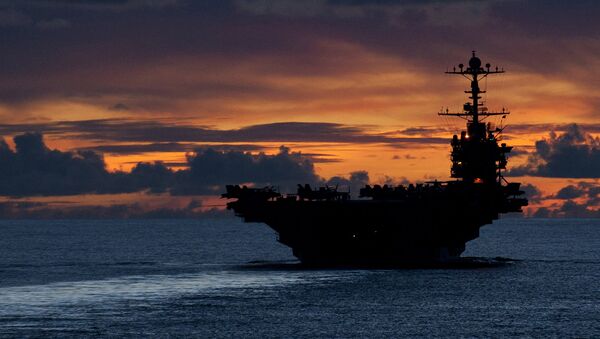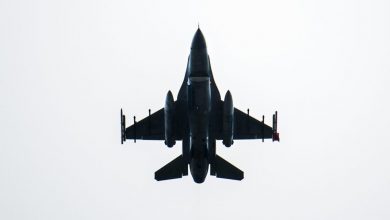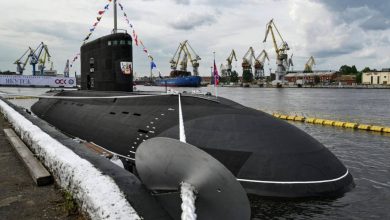Analysis: The showdown in the Indo-Pacific is underway

The geopolitical battlefield of the First Cold War was the Euro-Atlantic. On one side you had the U.S. and Western Europe, and on the other was the Soviet Union and its satellites. NATO and the Warsaw Pact were the military apparatus of these two poles. The battlefield of the Second Cold War is the Asia-Pacific.
According to American historians, the “Peloponnesian Wars” that took place between 431 and 404 BC explain the “great power rivalry” between the U.S. and China. Americans see these wars through the eyes of Athenian General Thucydides. According to Thucydides, it was the fear that the Rising Athens aroused over “Sparta” that led to the war. This judgment of Thucydides was adapted to a pattern that “the rising power and the established power sooner or later go to war”. Now, the “ghost of Thucydides” hovers over the entrenched hegemonic power of the U.S. and rising China.
The field of the Peloponnesian Wars was the geography of ancient Greece. Sparta stood out with its “Land” power and Athens with its “Sea” power. Sparta was the leader of the “Peloponnesian League” and Athens was the leader of the “Delian League”. City-states consisting of hundreds of islands were affiliated with one of the two alliances. Sparta and Athens represented different systems such as “oligarchy” and “democracy” in ancient conditions.
In addition to the states affiliated with Sparta and Athens, there were also city-states that were “satellites of the satellite”. The conflict between the two satellites led to the Peloponnesian Wars. The island of Melos, which wanted to remain ‘neutral’, was destroyed by Athens. Athens told Melos, “Join us, or you will have to endure destruction on our part. The strong subjugate the weak. You are either with us or against us”. Athens’ control of its allies by “force” or “intimidation” caused great anxiety in the counter-coalition. Athens had tied its allies to tribute. He used the tributes he cut out of “fear of the enemy” for himself. That’s why American generals liken NATO to the “Delian League”.
The growing arrogance of Athenian imperialism prepared its end. Athens was defeated by Sparta, the Delian League was dissolved. The Peloponnesian Wars, which are described as “the miniature of the world war”, also brought the end of the ancient Greek civilization. The Greeks lived under the rule of others for 2,200 years.
The developments in the “Asia-Pacific”, which the U.S. calls the “Indo-Pacific”, resemble the developments in the Ancient Greek region before the “Peloponnesian Wars”. The U.S., especially “AUKUS” and “Quadrilateral Security Dialogue”, seeks to expand its alliances in the region. The largest U.S. forces outside the country are under the Indo-Pacific Command. It is obvious that Taiwan provides a potential starting point in the U.S.-China strategic competition.
China is in conflict with many countries such as Japan, Vietnam, and the Philippines in the East and South China Seas about islands, islets, and cliffs. The United States, on the other hand, wants to limit China’s military access to Pacific waters as much as possible. The island states in the South Pacific are also in the circle of influence of the two superpowers. China is making diplomatic attempts with the island states for bilateral or multiple agreements, and they are trying to thwart these attempts with the U.S. and its allies.
China’s security agreement with the “Solomon Islands” administration in April disturbed the U.S., Japan, Australia, and New Zealand very much. According to these countries, China seeks to establish a military base on the islands. The U.S. is also trying to form a global coalition against China. The Biden Administration labels this coalition as a coalition of “techno-autocracies” versus “techno-democracies.”
The shift of the world economy from Europe and the U.S. to Asia shows that the great power competition of the 21st century will intensify in this region. Asia-Pacific geopolitics extends to the “Indian Ocean”. In this context, the coastal countries of East Africa are also within the scope of geo-strategic competition. About three-quarters of the world’s oil is transported through the Indian Ocean. China’s only military base abroad was built in Djibouti, on the East African coast.
The toxic mix of history, politics, pride, fear, interests, and imperialist hegemony sets the stage for war in the Asia-Pacific. Considering the history of great power conflicts, a war that will involve other actors besides the U.S. and China seems possible in the future. According to strategists, the Pacific war will be in the form of “sea-air wars”.
Depending on how we read, History is a good teacher, it shows us what happened and how things turned out. Forces that are not good students of history make war inevitable.





